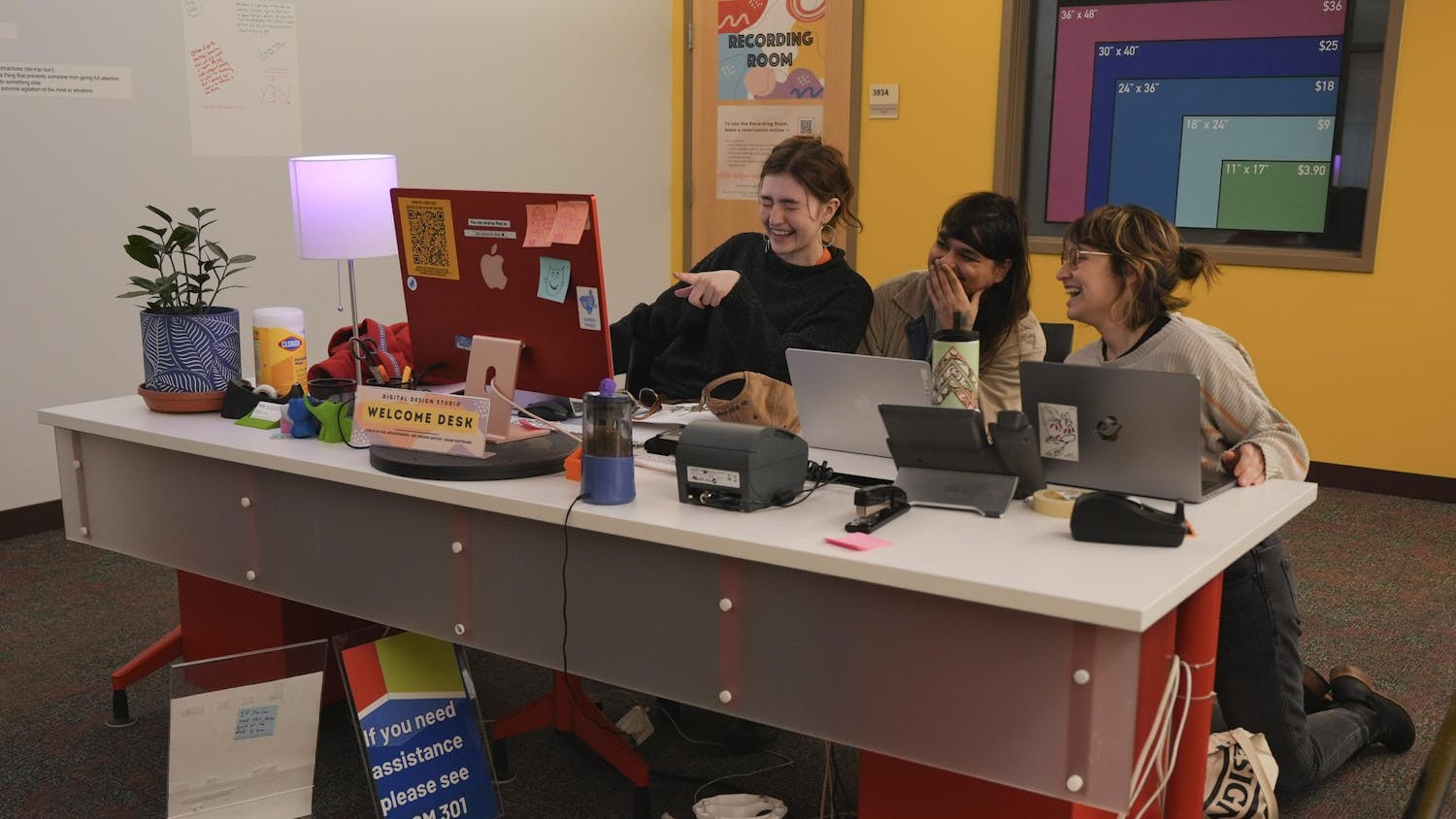Tufts Junior and Computer Science Major Jeremy Slavitz has been making video games for years, ever since a promotional giveaway exposed him to Apple’s App Store. Slavitz received an iPod Touch with his first Macbook, beginning his path in game development that has continued in college.
“I was playing a lot of games on the iPod Touch, and I became curious about how the games were built, so I looked into XCode," Apple’s suite of software development tools that can be used to create apps for iOS devices. Back then, [XCode] was super complex, a little bit too complex for me to understand,” Slavits continued. “Eventually, Unity (a cross-platform game development tool) came along, and I built a little game for the iPhone.”
Entitled “Wormholes,” Slavitz’s first game was a clone of Valve Software’s hit puzzle game “Portal” (2007) and released in the summer of 2011. A year later, Slavitz released a significant update to “Wormholes” that introduced new levels and in-app purchases (premium content that players could pay to access). According to Slavitz, the updated version received a “non-trivial” number of downloads after its debut on the App Store.
Unfortunately for Slavitz, the updated version of “Wormholes” caught the attention of Valve, who felt that Slavitz’s work was a little too similar to their own. “Valve actually eventually found [the game] and told me to take it down,” Slavitz said, and complied, “Wormholes” is now no longer available for download.
“After that experience … I wanted to make another game,” Slavitz said. "This time, I didn’t want to make a clone. Because, although [Wormholes] turned out well from a technical standpoint, because it wasn’t my own idea, [the game] wasn’t at all well-received by the people that were playing it, which was unexpected and a little off-putting.”
After finishing work on “Wormholes," Slavtz, still inspired by puzzle games like “Portal," began work on a new game, that would be no mere clone but instead would introduce new and innovative mechanics.
“There are very few games outside of 'Portal' that I really like to play," he said. "And I feel like that’s because 'Portal'’s mechanics are so different from basically any other game I’ve seen … I was trying to make a game that emulated the newness of 'Portal.'”
Slavitz worked on his second game on-again-off-again for roughly three years. He initially planned to release the game on iOS but later moved toward the PC, after the game’s complexity grew beyond what would play well on mobile. Slavitz describes his new game, "Metamorphic," as a “first-person puzzle-platformer that lets the player manipulate physics to get through each puzzle.”
This past February, Slavitz listed “Metamorphic” on Steam Greenlight, a service established by Valve Software that allows gamers to vote on games they would like to be available for purchase on Steam, Valve’s digital storefront.If a game receives a positive reaction on Greenlight, Valve will allow the developer to release its title for sale on Steam.
“Metamorphic” received an overwhelmingly positive response on Greenlight, and Valve approved the game for sale roughly a week after Slavitz first listed it. According to Slavitz, “Metamorphic” will likely see release on the PC this summer, after he finishes polishing the final build.
Slavitz chose to release his game through Greenlight, rather than a more traditional arrangement with a publisher because he prefers to work alone. But he is not opposed to working with a publisher to perhaps bring “Metamorphic” to consoles in the future. The innovative mechanics and high production values of "Metamorphic" would make the game a valuable addition to any console’s library of independently developed games.
Interested readers can follow the game as it nears its release by visiting metamorphic-game.com or liking the game on Facebook at facebook.com/morphicgame
Tufts student Jeremy Slavitz prepares to release second game






